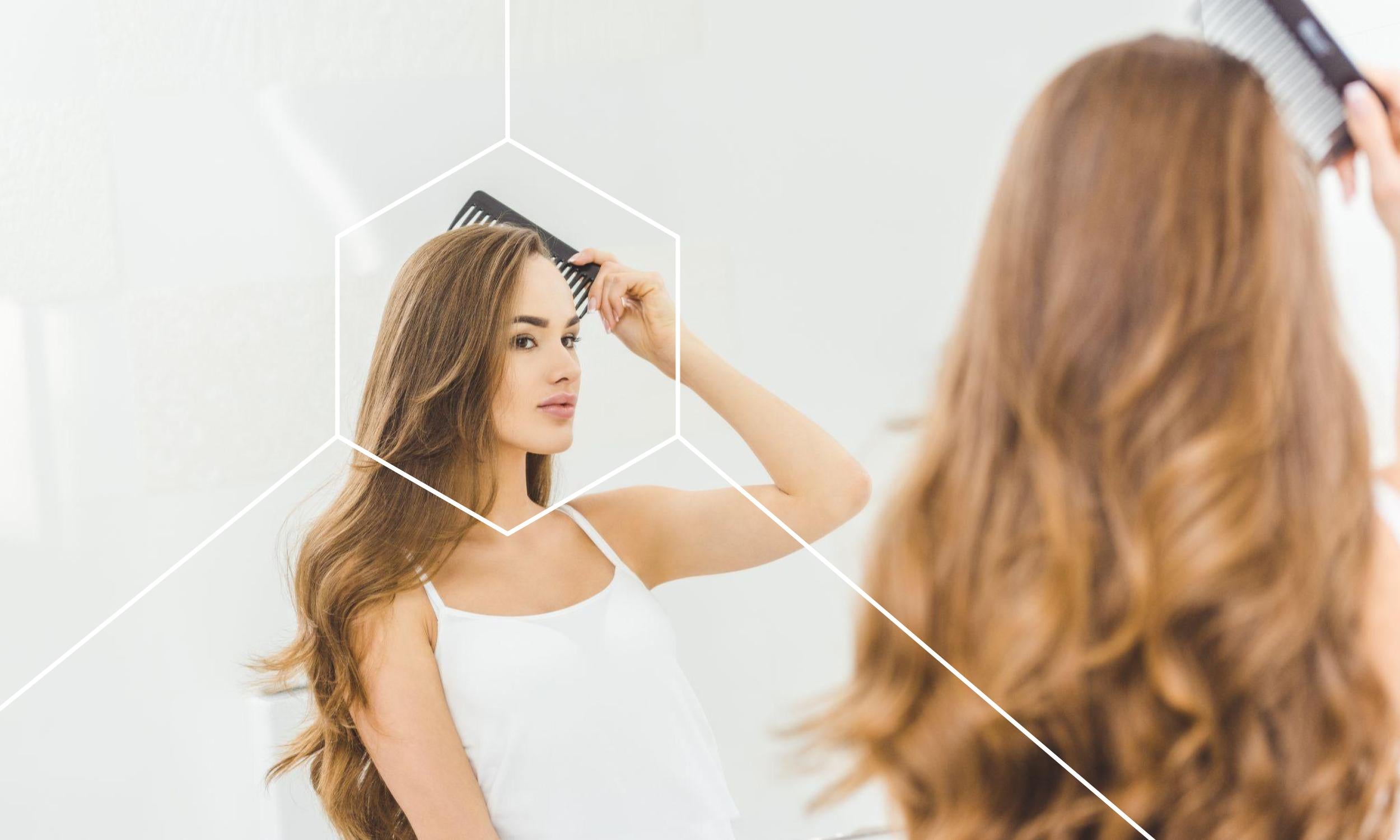
Every day we look in the mirror to make sure our hairline hasn’t moved any further back. We make sure that the bald spot on the top of our head hasn’t grown any. We also buy products and supplements that promise fast and healthy hair growth. While these products provide some benefits, nothing beats a healthy diet. This article will go over why your diet matters, what foods you should avoid, and the foods you should be adding to your diet.
What Food Should You Avoid for Hair Growth?
When it comes to hair growth, you may not think about your diet. We all know how important our diet is when it comes to weight loss, but your diet can also play a significant role in hair loss. What you don’t eat can be as important as what you do. Here are some foods to avoid if you are looking to improve hair growth:
- Diet Soda - Diet soda often contains Aspartame, which can cause hair loss and thinning if consumed excessively
- Sugar - Your hair needs protein to grow, and sugar can hinder the absorption of protein
- Fast food - Greasy food can easily translate to a greasy scalp, which can clog your pores
- Liquor - Excessive alcohol intake can slow the levels of zinc in your body, which is necessary for healthy hair and growth
- Fish that carry mercury - Mercury can be bad for hair growth. The general rule of thumb is, the bigger the fish, the higher the mercury it contains
Now, this doesn’t mean you have to avoid these foods for the rest of your life. Try your best to cut these foods out of your diet as much as possible.
What Are the Long-Term Effects of Aspartame?
We mentioned above that you should avoid diet sodas as they contain a high amount of aspartame. This artificial sweetener is consumed by over 200 million people worldwide. It is found in over 6,000 food products, including dry beverage mixes, chewable multi-vitamins, breakfast cereals, chewing gum, puddings, and carbonated beverages. Unfortunately, aspartame induces toxicity at various levels.
Recent research indicates aspartame is a multipotential carcinogenic agent that increases the risk of lymphoma, leukemia, urinary tract tumors, and neurological tumors. Researchers located this increased risk at a daily dose of 20 mg, which is much less than the acceptable daily dose of 40 mg. More research has also pointed towards an increased risk of type 2 diabetes, preterm delivery, nephrotoxicity, hepatotoxicity, and induction of histopathological changes in the parotid salivary glands.
Can Vitamin Deficiency Cause Hair Loss?
Androgenetic alopecia - also known as male or female pattern baldness - is the most common cause of hair loss. Experts estimate that nearly 70% of men and 25% of women are affected by hair loss. If you are one of these men or women, vitamin deficiencies may be responsible for your hair loss. Here are some vitamin deficiencies that lead to hair loss:
- Vitamin D
- Zinc
- Selenium
- Iron
If you believe your hair loss results from vitamin deficiency, you should speak with a doctor. Your doctor can make diet and supplement recommendations as well as other forms of treatment.
What are the Long-Term Effects of Being Vegetarian?
There are many great benefits of a vegetarian diet - but it can be difficult. Without proper planning, many vegetarians fail to get the nutrients, vitamins, and proteins they need. This can lead to several different health issues, including hair loss and hair thinning. Some common nutrient deficiencies among vegetarians include:
- Protein
- Iron
- Zinc
- Biotin
- Vitamin D
Even though you can find these nutrients in plant-based foods, the best source for these nutrients is animal-based. You may also notice that many of these nutrient deficiencies are the same ones we mentioned earlier regarding hair loss. A well-balanced vegetarian diet is required to prevent these deficiencies.
What Foods Promote Healthy Hair growth?
A healthy diet is probably the best way to ensure a healthy head of hair. While products and supplements can be great, they don’t provide a healthy diet’s long-term benefits. By practicing a healthy and balanced diet, you can get all the nutrients, minerals, and vitamins your scalp needs. Here are some of the best foods for hair growth:
- Eggs
- Berries
- Spinach
- Fatty fish
- Sweet potatoes
- Avocados
Of course, the benefits of these foods extend well beyond hair growth. Not only will your hair be healthier, but so will the rest of your body.
Supplements Can Help
Taking care of your body with a proper diet, exercise routine, and supplement regimen can help you prevent hair loss. As we mentioned earlier, vitamin supplements can significantly improve hair quality and growth. One other supplement to look into is spermidine. Spermidine is a naturally occurring polyamine that helps your body induce a process known as autophagy. Autophagy is your body’s natural cellular renewal process, which recycles older potentially damaged cell parts with newer, healthier ones. While research on spermidine and hair growth is still early, the results have been promising. Spermidine supplementation can reduce hair loss by boosting keratin production, an essential protein necessary for hair and nail growth. Furthermore, studies have shown spermidine supplementation to prolong the anagen phase of hair growth - the stage responsible for hair growth.
Resources:








